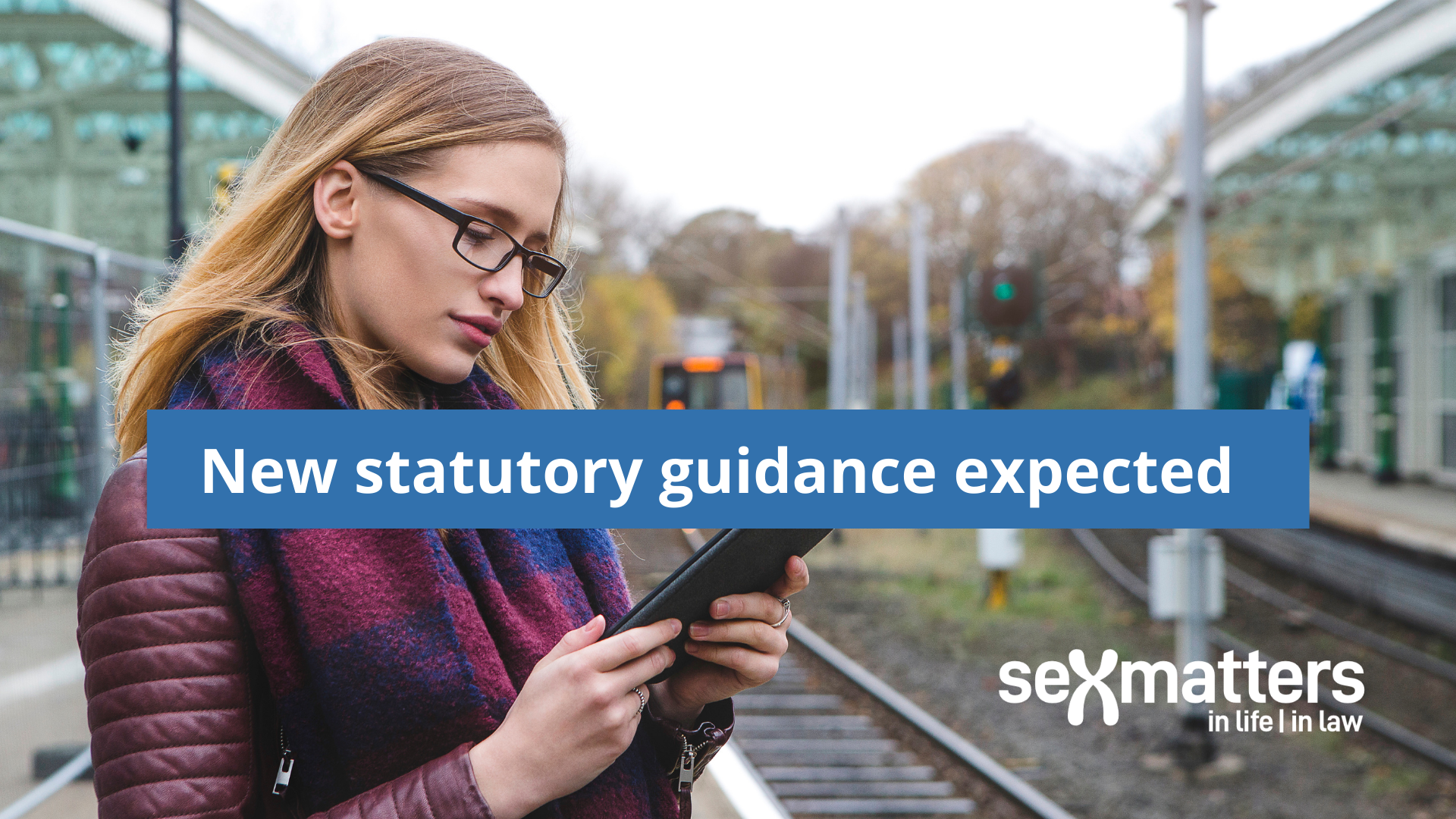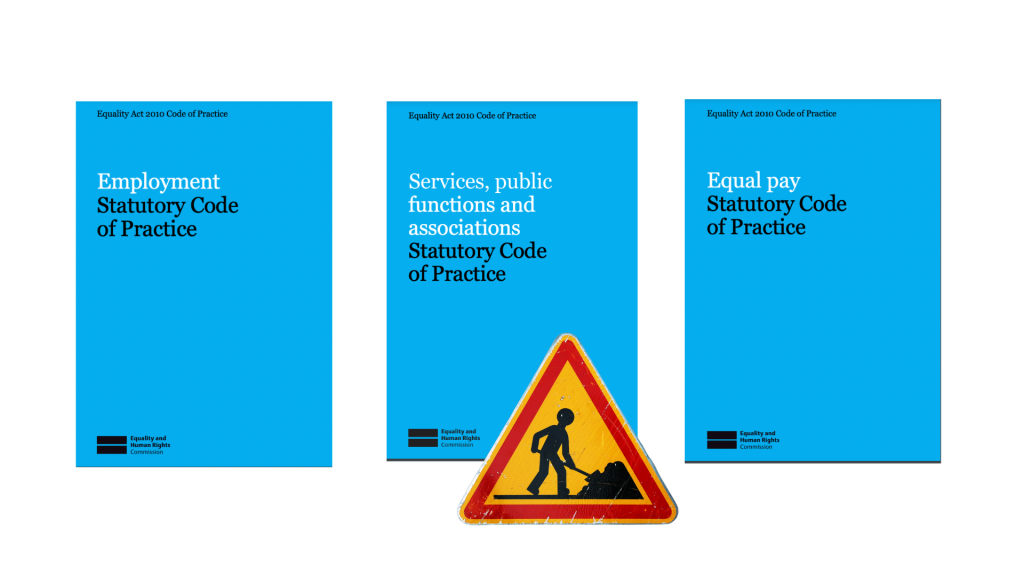
Statutory Codes of Practice under review
On 27th April 2022, at a seminar on single-sex services and the Equality Act 2010, at Matrix Chambers, Equality and Human Rights Commissioner Akua Reindorf shared news that the EHRC is reviewing the statutory Codes of Practice.
This responds to concern that the new guidance on single-sex and separate-sex services conflicts with the statutory codes, creating a potential train wreck. The EHRC will avoid this by amending the codes to bring them into line with the law.
Sex Matters welcomes the news that the EHRC is planning to amend the the Codes of Practice, which were published in 2011 and are out of date, confusing, and out of line with the Equality Act and recent case law.
What are the Codes of Practice?
There are three statutory Codes of Practice: Employment; Services, public functions and associations; and Equal pay. Most of the detail on single-sex services is found in the Services code, although all of them refer to the protected characteristic of sex.

The Codes of Practice seek to provide organisations with reliable, practical guidance to help them to comply with the Equality Act.
The codes do not have the status of law, but they are approved by the Secretary of State and laid before Parliament, and they can be used in evidence in legal proceedings brought under the Equality Act. Courts and tribunals must take into account any part of a code that appears to them relevant to any questions arising in proceedings.
Stonewall have said that no changes to the current statutory guidance are needed. We disagree and will seek to contribute to the development of usable, clear guidance. In particular we will be providing evidence from our single-sex services survey which received over 7,000 responses in the course of a week.
What happens next?
The EHRC has the power to issue and amend statutory codes of practice under the Equality Act 2006. Before issuing a code the Commission shall publish proposals, and “consult such persons as it thinks appropriate”. It then submits a draft to the Secretary of State who must either approve the draft, or give written reasons. The draft is then laid before Parliament for 40 days and, if neither House passes a resolution disapproving the draft, within 40 days it will become new statutory guidance. We understand that the review of the codes will take place this year.
